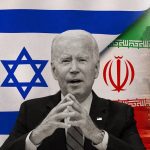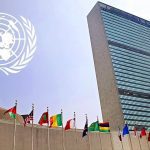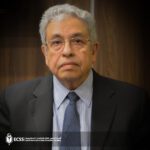Moscow is pulling out all the stops to emerge from its diplomatic isolation and break the Western sanctions imposed on it, towards defusing the global food, oil, and gas supply crisis, and keeping down the high costs of freight due to the Russian blockade of Ukrainian ports.
In the midst of this, Russian Foreign Minister Sergei Lavrov set off on a tour to four African countries (i.e. Egypt, Uganda, the Democratic Republic of the Congo, and Ethiopia) from 24 to 28 July.
Egypt was Lavrov’s first stop, being Russia’s primary partner in Africa. Lavrov reiterated the need to resolve food security issues and expressed Russia’s desire to promote investments, develop trade and economic partnerships, and expand in the African market. Indeed, expansion in the African market has become a notable strategy of major powers to extend their areas of influence beyond their geographical scope by making capital of Africa’s promising potential.
The Pressing Context of the Russia-West-US Rivalry in Africa
Lavrov’s visit came within the framework of the intense diplomatic activity by Russia, France, and the United States in Africa to lobby African countries with regard to the Ukraine war. For instance, Lavrov’s tour followed the first visit of US President Joe Biden to the Middle East and his participation in the Jeddah Security and Development Summit and the US-Africa Business Summit in Marrakech, during which Washington announced a new development plan for Africa under the banner of “Building Forward Together”, aimed at establishing tripartite US-Morocco-Africa business partnerships.
Furthermore, concurrently with French President Emmanuel Macron’s visit to Cameroon, Benin, and Guinea Bissau from 25-28 July, the US Special Envoy for the Horn of Africa Mike Hammer visited Egypt, Ethiopia, and the UAE in the period from 24 July to 1 August. Following Hammer’s visit the United States announced $488 million in humanitarian aid for Ethiopia to overcome the drought crisis and meet the urgent needs of the Ethiopian people.
With the changing lineaments of the global order, the emergence of global challenges and crises, including food, energy, climate change, and epidemics, and the growing international interest in Africa, African countries stand a good chance to balance their relations with the global poles, given their economic resources, geo-strategic importance, voting blocks in the United Nations (UN) (as has been evidenced in March 2022 when most African countries abstained from joining Western countries and the United States in imposing sanctions on Russia.
European countries are heading to Africa in an effort to reduce the reliance on Russian oil and gas and secure alternative supplies to them. Recently, the Algerian government revived the Trans-Saharan gas pipeline, which has an annual capacity of 30 billion cubic meters and connects gas fields from Nigeria to Algeria, passing to Europe. African countries that have recently discovered substantial quantities of offshore gas, including Mozambique, Tanzania and Senegal, are seeing renewed interest from foreign investors. The global energy crisis could perhaps contribute to developing the African energy market, particularly in view of the Italian Foreign Minister Luigi Di Maio’s visit to Angola and Congo to negotiate liquefied natural gas deals. Additionally, German Chancellor Olaf Scholz visited Senegal to engage in talks on gas and natural gas projects that can ensure a fair transition to energy sources that serve the African countries and people.
Diverse Goals and Multiple Portfolios
Over the past decade, Russia has engaged in several efforts to gain influence in Africa. Russia’s exports of military equipment to Africa accounted for nearly half of Africa’s military imports, including large arms (e.g. battle tanks, warships, fighter aircraft, and combat helicopters) and small arms (e.g. pistols and assault rifles such as the new Kalashnikov AK-200 assault rifle). The Russo-African relations are perhaps entering a new phase in view of Lavrov’s visit. Lavrov discussed with African leaders a wide range of international, regional, and bilateral issues, focusing on setting a new multipolar international agenda and exploring current and future prospects for trade, economic, investment, scientific, technological and humanitarian relations in light of the Russo-African strategic partnerships. The talks zoomed in on:
• Strengthening Africa’s Position in the Global Energy Market: The Africa Energy Outlook 2022 revealed an unprecedented level of new oil and gas discoveries in Africa. In effect, more than half of Sub-Saharan Africa’s population live with no access to electricity. By 2040, Africa’s population will have crossed the two billion mark, which would require increasing energy generation twofold by 2030 and fivefold by 2050. This makes it necessary to expand energy productivity in Africa to ensure equitable access to energy and alleviate energy poverty through a strategy based on partnership, transparency, and good governance, towards creating an environment that is conducive to economic development and infrastructure improvement and enables benefiting from the Russian companies in African energy projects, especially the El Dabaa Nuclear Power Plant in Egypt.
• Securing Grain Supplies: Ukraine is the largest exporter of wheat, corn, and sunflower oil in the world. However, the Russian blockade of Ukraine’s Black Sea ports caused shipments and food supply chains to be suspended. Some Ukrainian grain was transported through Europe by rail and road. After two months of intense negotiations, Russia and Ukraine signed the Black Sea Grain Initiative aimed at removing the barriers to the movement of ships from the Black Sea ports, establishing safe shipping corridors for the export of grain from three Ukrainian ports, facilitating Russian grain exports, and mitigating the global food crisis, with 20-25 millions of tons of grain in Ukrainian ports tied up in since the outbreak of the Ukraine war. Relatedly, Russia pledged to help African countries access food commodities, particularly grain, fund several projects to promote best agricultural practices, and explore promising potential in the agricultural sector.
• Forging New Alliances: Moscow is working to mobilize non-Western voices and obtain the support of African countries, taking advantage of the wave of sympathy shown by several African countries, towards strengthening its position in the continent. In the Security Council, 17 African countries refrained from condemning Russia over the Ukraine war and no single African country imposed sanctions on Russia, as did many countries in Europe and North America. Moscow is counting on this to diversify its relations with the African countries, extending them beyond the security, military, defense aspects and extractive industries and intensifying military partnerships with African countries (it captures over half of the African market as opposed to China and the United States together). Further, Moscow plans to build military bases in six African countries. When it comes to trade partnerships, China emerges as the biggest trade partner with Africa. According to the 2022 African Youth Survey of the Ichikowitz Family Foundation, 76 percent of the respondents had positive perceptions of Beijing’s influence whereas their perceptions of US influence in Africa decreased to 67 percent. In 2021, the trade volume between China and African countries amounted to $250 billion, as opposed to only $64.33 billion for the United States.
• Preparing the Ground for the Second Russia–Africa Summit: The second Russia–Africa Summit is scheduled to be held in October 2023 with the aim of strengthening trade and defense agreements between Russia and African countries and achieving peace and stability in Congo, the Central African Republic, Cameroon, and Chad. During his recent visit, Lavrov discussed plans to develop military-technical cooperation with Ethiopia. Additionally, as part of the “rival summits” policy, the United States plans to hold a summit with African countries in the period from 13 to 15 December 2022, with full agenda to promote economic relations, consolidate democracy, achieve peace and security, and address global issues, health threats, climate change crises, and food security.
• Reforming the Security Council Structure: Developing countries, particularly African ones, are underrepresented in the UN Security Council (SC). Generally, there is a need for greater representation for African, Asian, and Latin American states in the SC. Overall, the SC is composed of 15 members: five permanent members, i.e. the United States, China, Russia, France, and Britain that make the structure of global power, and ten non-permanent members elected for two-year terms. African leaders are pushing for permanent representation of Africa in the SC. The African Union called for increasing the membership of the SC to 25 members, with 6 permanent seats two of which for Africa along with 5 non-permanent seats. For its part, Moscow expressed its support for Africa’s orientations to reform the SC, expand the use of national currencies to promote trade exchange with African countries, and redefine international standards set that establish local governance models.
In short, the Ukraine war revealed Africa’s strategic geopolitical significance for Russia. However, Russian investments are still limited, Russian companies have weak presence in Africa, and there is little incentive for African countries to localize equipment production and promote technological partnership in the energy sector.
Identifying and integrating Africa’s development needs should be a priority area in Russia’s foreign policy, for it to gain more influence in the face of the West and correct its image of “exporting hunger” to Africa, given the historical role of the former Soviet Union in liberating African countries from colonialism, particularly countries of South Africa. Perhaps these historical friendship considerations and the desire to achieve balance between the various power blocs were manifested in the rejection of Angola, Mozambique, Zimbabwe, and Namibia to vote on the United Nations resolution calling on Russia to end its military operations in Ukraine.













